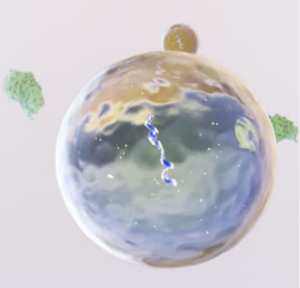The current diagnostic criteria for SSD place a greater emphasis on patient behavior assessment and frequently involve patient self-assessment, which is very subjective and not helpful for early diagnosis or efficacy evaluation. The scientific reliability of SSD diagnosis will be significantly increased if optimal biomarkers for SSD can be discovered.
To ensure high purity of mRNA during repeated or long-term administration for therapeutic applications, several costly and time-consuming purification steps are required. These extra operational steps frequently result in increased RNA degradation, lower quality, and/or lower yield. To reduce the burden of downstream purification steps, a more efficient mRNA synthesis process must be developed.
On November 10, 2022, Moderna researchers published a research paper in the journal Nature Biotechnology entitled “An engineered T7 RNA polymerase that produces mRNA free of immunostimulatory byproducts”.
The research team developed a double mutant of T7 RNA polymerase by rational design. Compared with wild-type T7 RNA polymerase, the mutant simplifies the production of in vitro transcription (IVT) mRNA, improves mRNA product purity without reducing yield, significantly reduces the production of immunostimulatory byproduct double-stranded RNA (dsRNA), and also has a faster production time.
This discovery opens the door to streamlining the development of therapeutic mRNA production processes, improving cost-effectiveness, and producing mRNA-based products with clinical or commercial applications.
In vitro transcription is an enzymatic process used to synthesize mRNA products. During IVT, RNA polymerase (RNAP) is responsible for transcribing RNA from a DNA template.
T7 RNA polymerase, with a molecular weight of about 99 kDa, is the most commonly used polymerase for IVT. Because of its high yield and high fidelity of transcripts, it is well suited for IVT RNA production and has thus been widely used in research and commercial development. T7 RNA polymerase, on the other hand, generates a number of byproducts, including immunostimulatory byproducts of template transcription and double-stranded RNAs (dsRNAs), which may affect efficacy and safety, particularly in therapeutic applications.
The conformation of T7 RNA polymerase in the catalytic cycle influences the production of sRNAs and other by-products during IVT. T7 RNA polymerase-mediated transcription is divided into three stages: initiation, elongation, and termination. The N-terminal domain (NTD) of T7 RNA polymerase binds to the promoter sequence during initiation to form an initiation complex which is unstable and results in the production of short RNA transcripts (2-10 nucleotides in length). When the length of the transcript exceeds 10 nucleotides, the NTD promoter-binding residues rearrange, releasing the DNA promoter region and forming a stable, processive enzyme extension complex. Termination occurs in response to a specific signal sequence or when the end of the linearized DNA template is reached, a process known as “runaway transcription,” which produces full-length RNA but occasionally non-template appendages at its 3′ end.
Furthermore, T7 RNA polymerase can transcribe RNA as a template, resulting in the formation of dsRNAs and loopback dsRNA products.
The researchers present a double mutant T7 RNA polymerase (G47A+884G) that significantly reduces dsRNA byproducts in IVT while maintaining mRNA yield and purity, reducing the burden of controlling transcription-associated dsRNA byproducts in downstream purification processes.
Overall, this study demonstrates that by modifying the T7 RNA polymerase, the formation of immunostimulatory byproducts can be reduced. This discovery paves the way for more efficient development of therapeutic mRNA production processes, increased cost-effectiveness, and the production of mRNA-based products with clinical or commercial applications.












